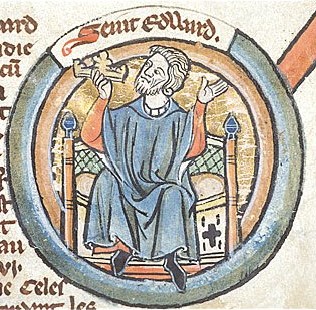The Just King
Edward was born in 1003 in Oxford, England, the son of King Ethelred II, who was later unseated by a Danish invasion. Edward was to be sent to Denmark to be killed, but fled to Normandy instead. His mother later married the invader’s son, Canute, so Edward waited to return to England.
Edward gained a reputation as a just man, worthy of kingship, and the people of England gave him their support. After Canute and Canute’s son died, Edward ascended to the throne of his father on April 3, 1042, Easter Sunday.
Edward’s elder brother Alfred had been brutally murdered by Godwin, Earl of Kent. Nevertheless, for reasons of state, Edward married Godwin’s daughter, Edith, in 1044. She turned out to be very different from her father. He and the queen remained celibate in their marriage.
As king, Edward contended with the powerful opposition of Godwin along with other grave difficulties, such as rivalry between Norman and Saxon courtiers. With determination, Edward staved off invaders during his reign, and he helped restore the King of Scotland to his rightful throne. Edward was generous with the royal treasury, especially to the poor and to strangers who begged for mercy. He also remitted unjust taxes.
King Edward was known for his devout faith and love of God. It was reported that he healed people by his touch. The king had churches built, including Westminster Abbey. He died at Westminster on January 5, 1066. As he lay dying, his words were: “I shall not die but shall live. Departing from the land of the dying, I hope to see the good things of the Lord in the land of the living.” He was canonized in 1161, and his saintly body is incorrupt in the Abbey of St. Thomas à Becket.
Other Saints We Remember Today
St. Gerald of Aurillac (909), Patron of bachelors and the handicapped












